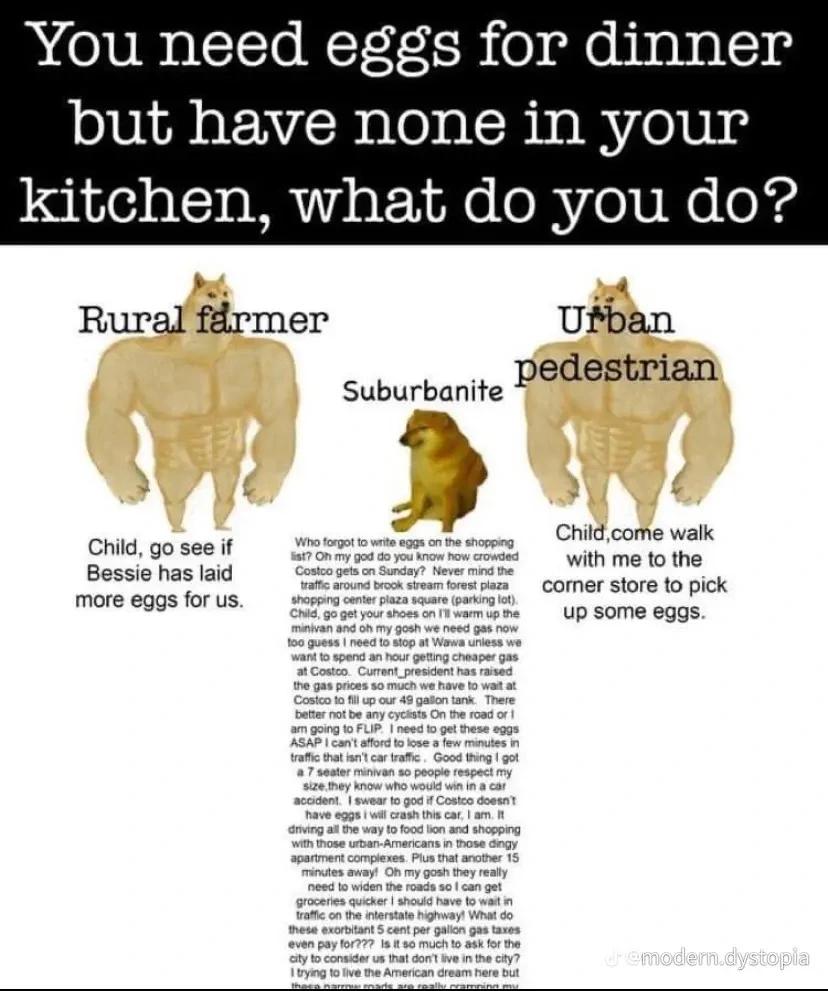this post was submitted on 03 Apr 2024
806 points (97.5% liked)
196
17043 readers
760 users here now
Be sure to follow the rule before you head out.
Rule: You must post before you leave.
If you have any questions, feel free to contact us on our matrix channel.
founded 2 years ago
MODERATORS
you are viewing a single comment's thread
view the rest of the comments
view the rest of the comments

It's not the best of both though, it just the worst of both.
The best of both are small towns along railways, with a dense core with some amenities surrounded by decreasing density until it quickly becomes pure countryside, and thanks to the station it's easy to get to and from the big city.
And if you only want rural surroundings you can have train halts basically in the middle of nowhere, there's a couple like that in my region and it's absolutely delightful.
Oh my fuck that sounds so cool. I think youre right. Trains, as always, are key.
So do you put a population limit on small towns? How do you think major Metropolitan areas got started? They didn't just appear one day, they grew over time from small port and station towns...
huh? why would suburbs magically be exempt from that idea?
Yes, places grow, this is why it's important to apply good urban planning and use as much high density housing as possible, otherwise you get the miserable car-dependent sprawl we see in america and much of the rest of the world.
By centering around transit stops you get rid of the need for all the parking and roads that takes a ton of space (which lets urban areas be smaller while containing the same amount of living space), and by having many small towns with high density centers spread out like this you maximize how many people can live close to the countryside.
This is a perfect description of the Netherlands
and surprise surprise the netherlands is really nice
My point is that what you described is basically a city with suburbs on a reduced scale. If a town is nice and successful, you're gonna have people that want to move there, so your options are to build outward, upward, or not at all. It sounds like you'd prefer towns build upward rather than outward, which is obviously valid, but it's a matter of preference. People who don't mind living in an apartment will move into the city center, people who value space over commute will move to the suburbs.
Where I think things get turned around (in the states anyway), is the lack of community-run programs and local business owners. Community gardens, neighborhood solar cells, locally owned farms, grocers, and corner stores are all things I'd like to see way more of in suburban areas.